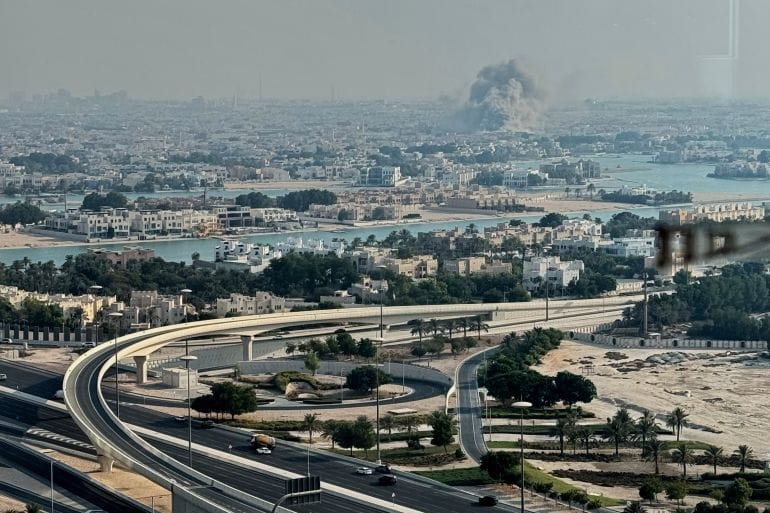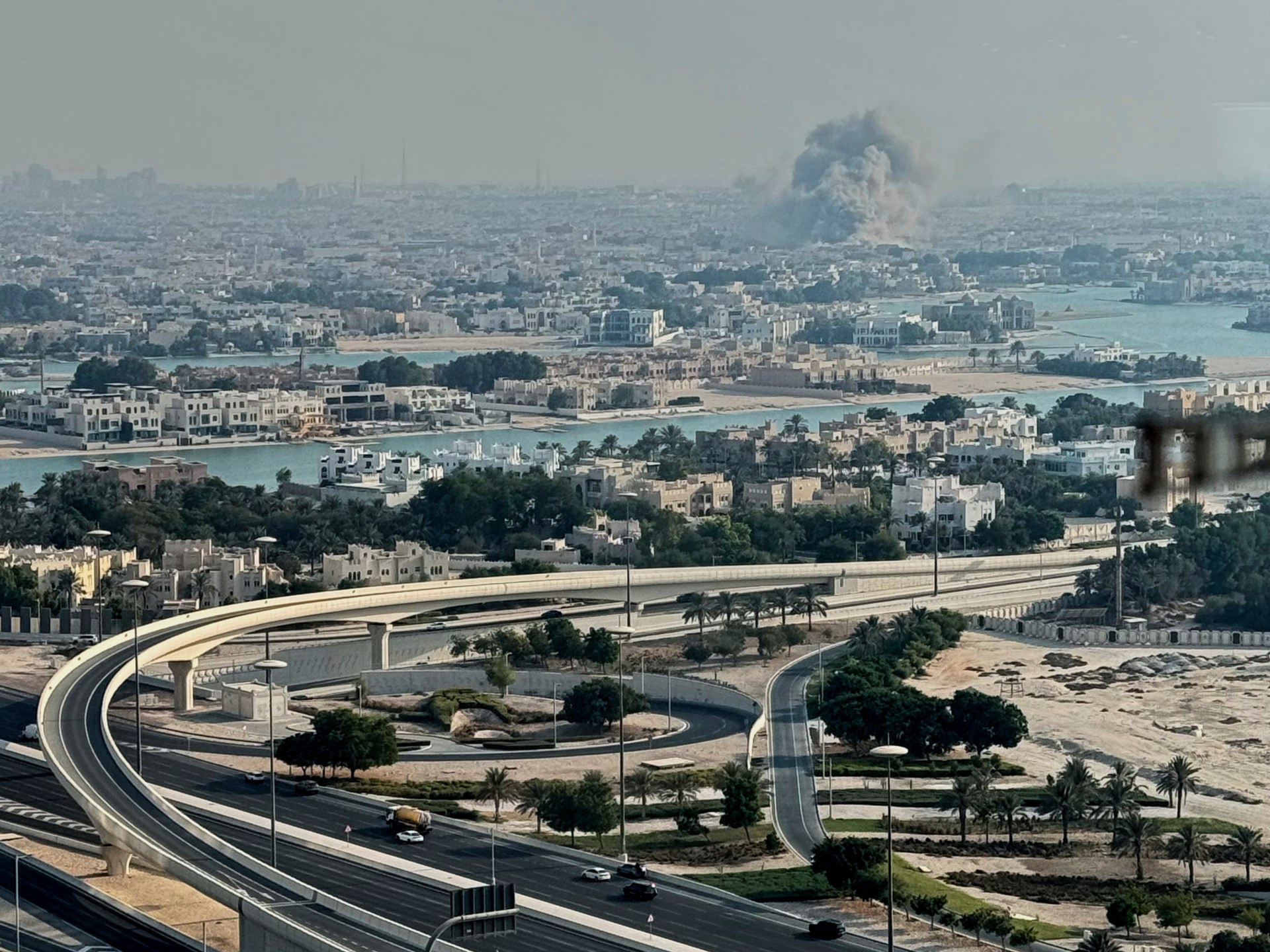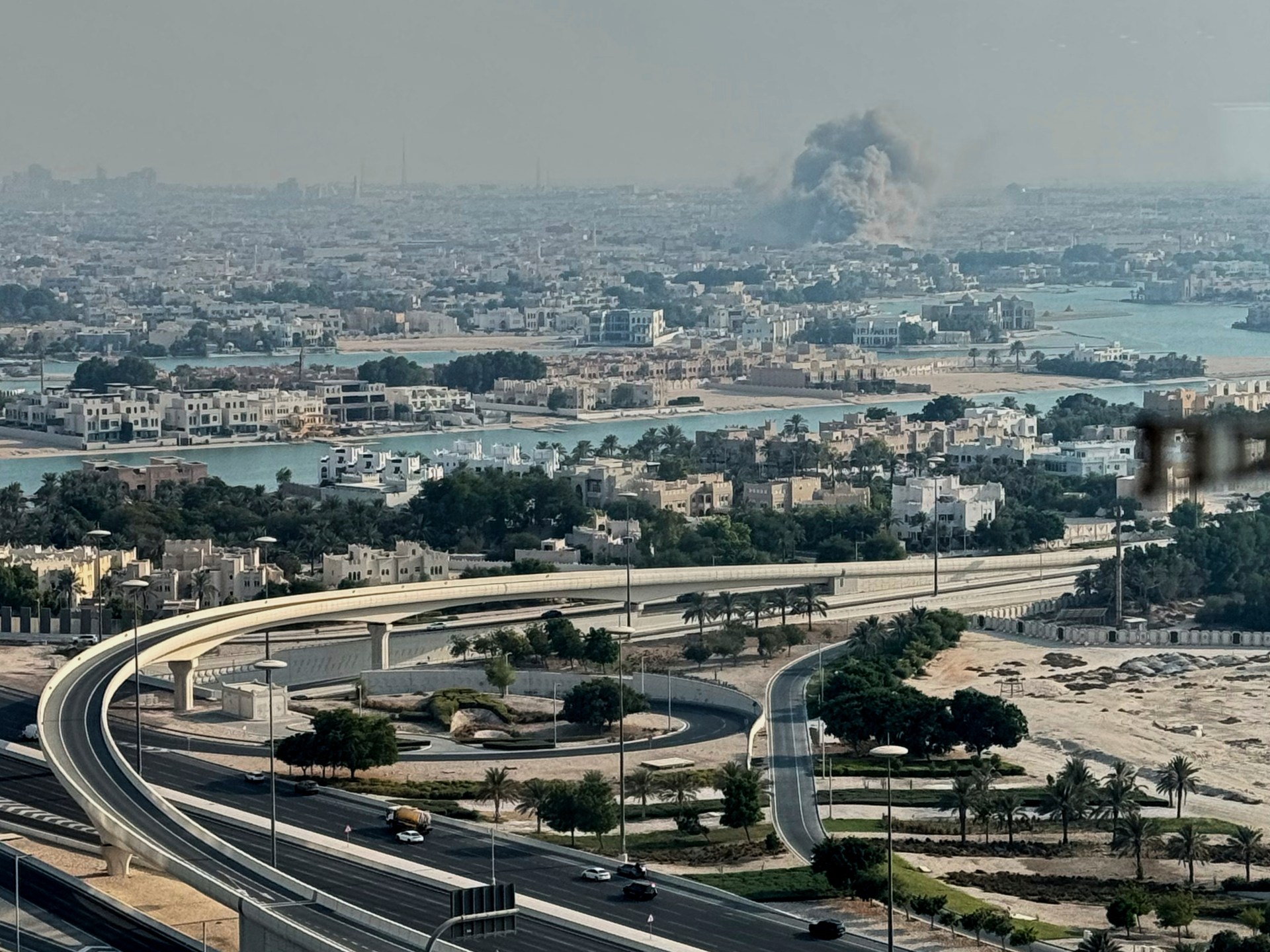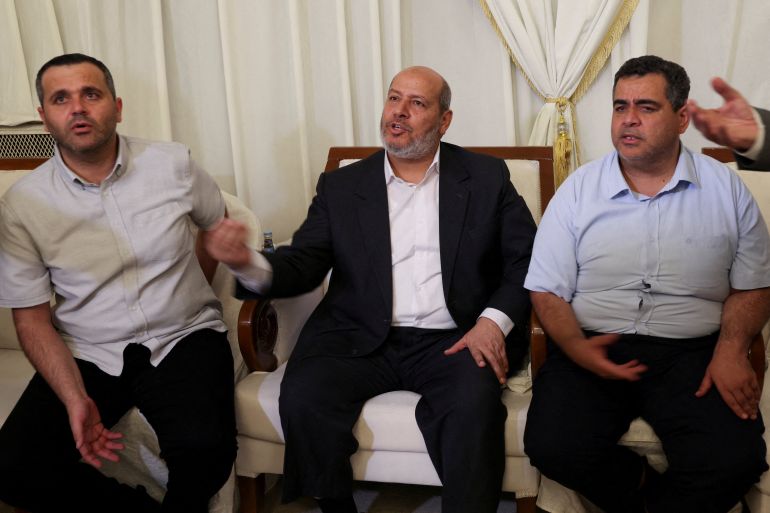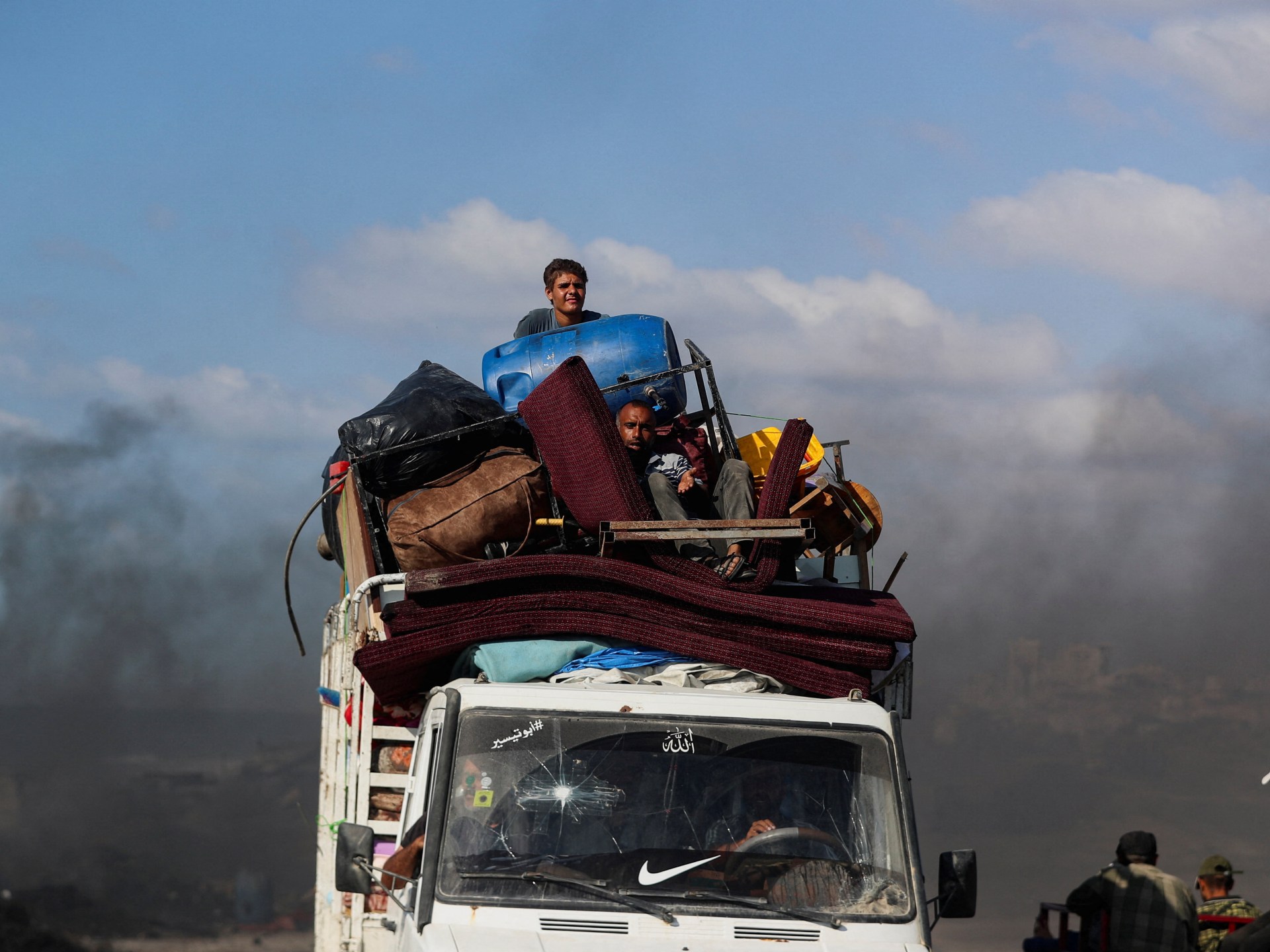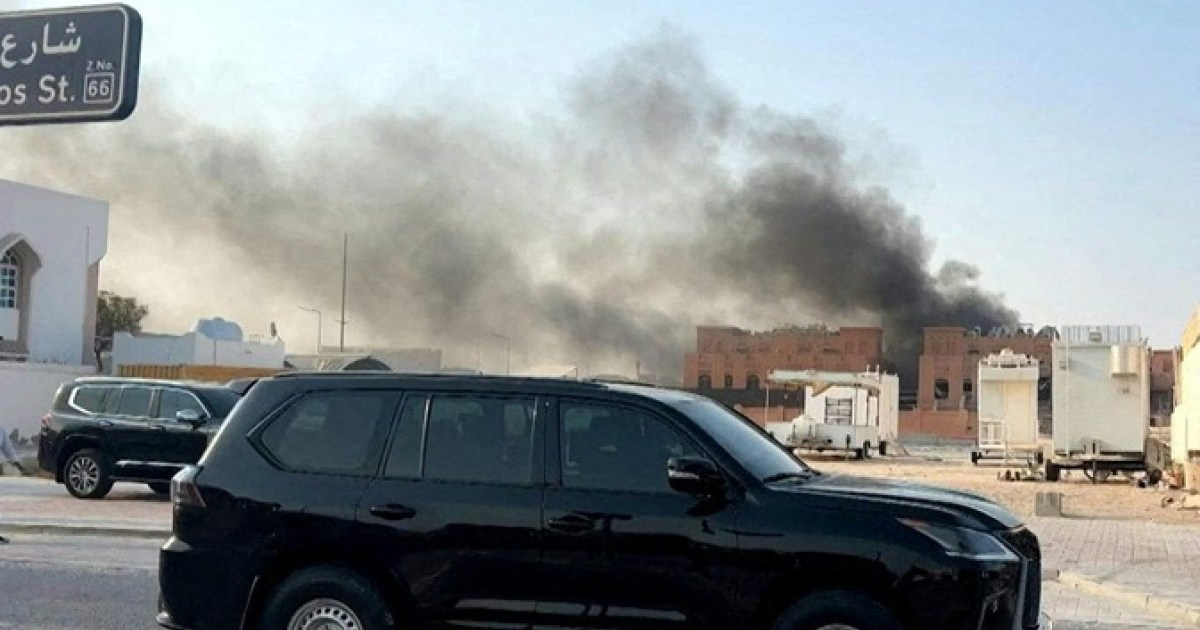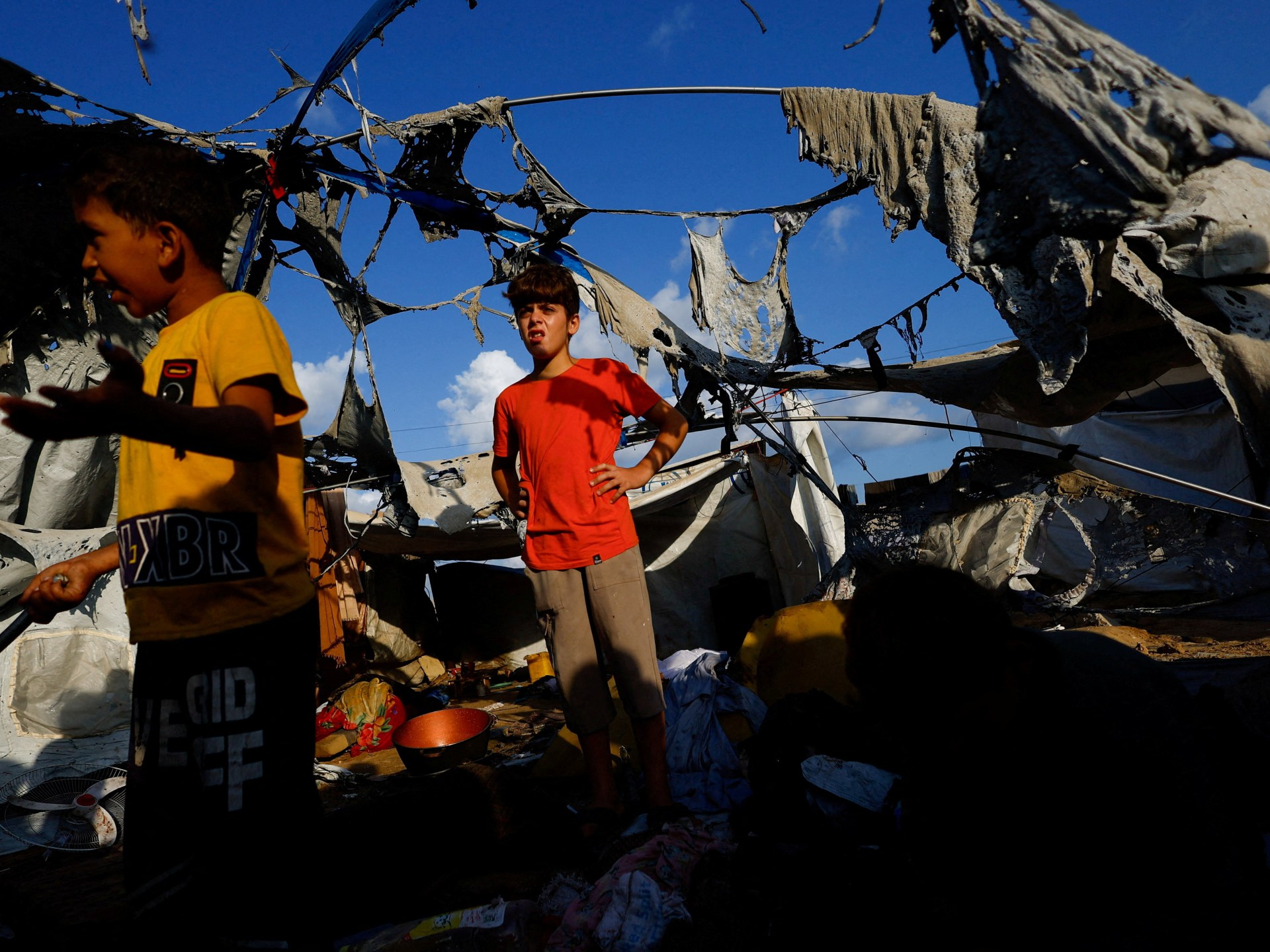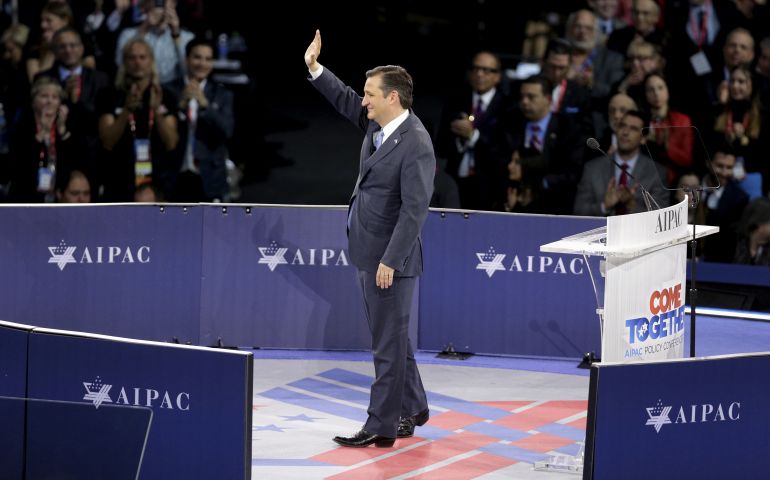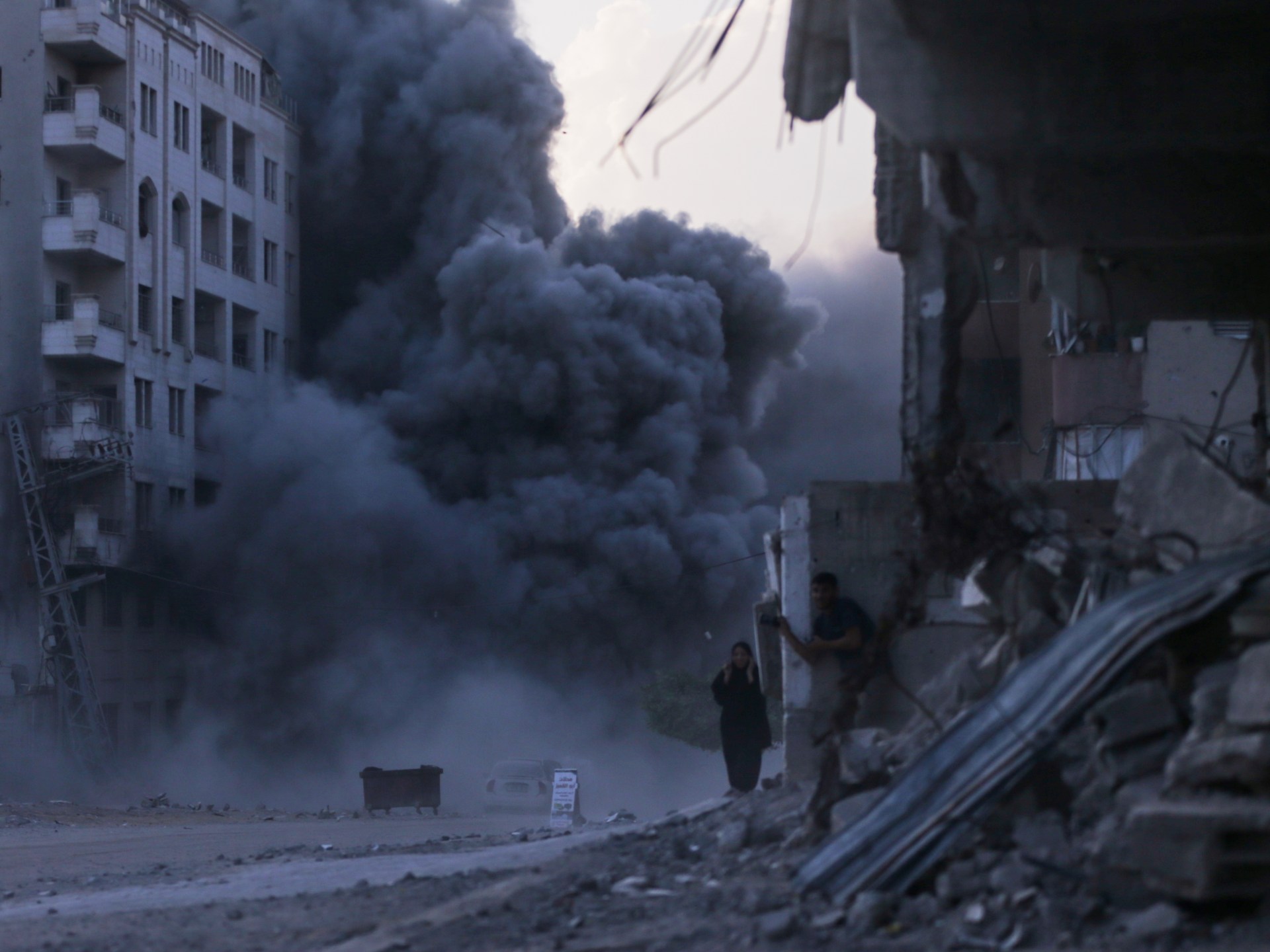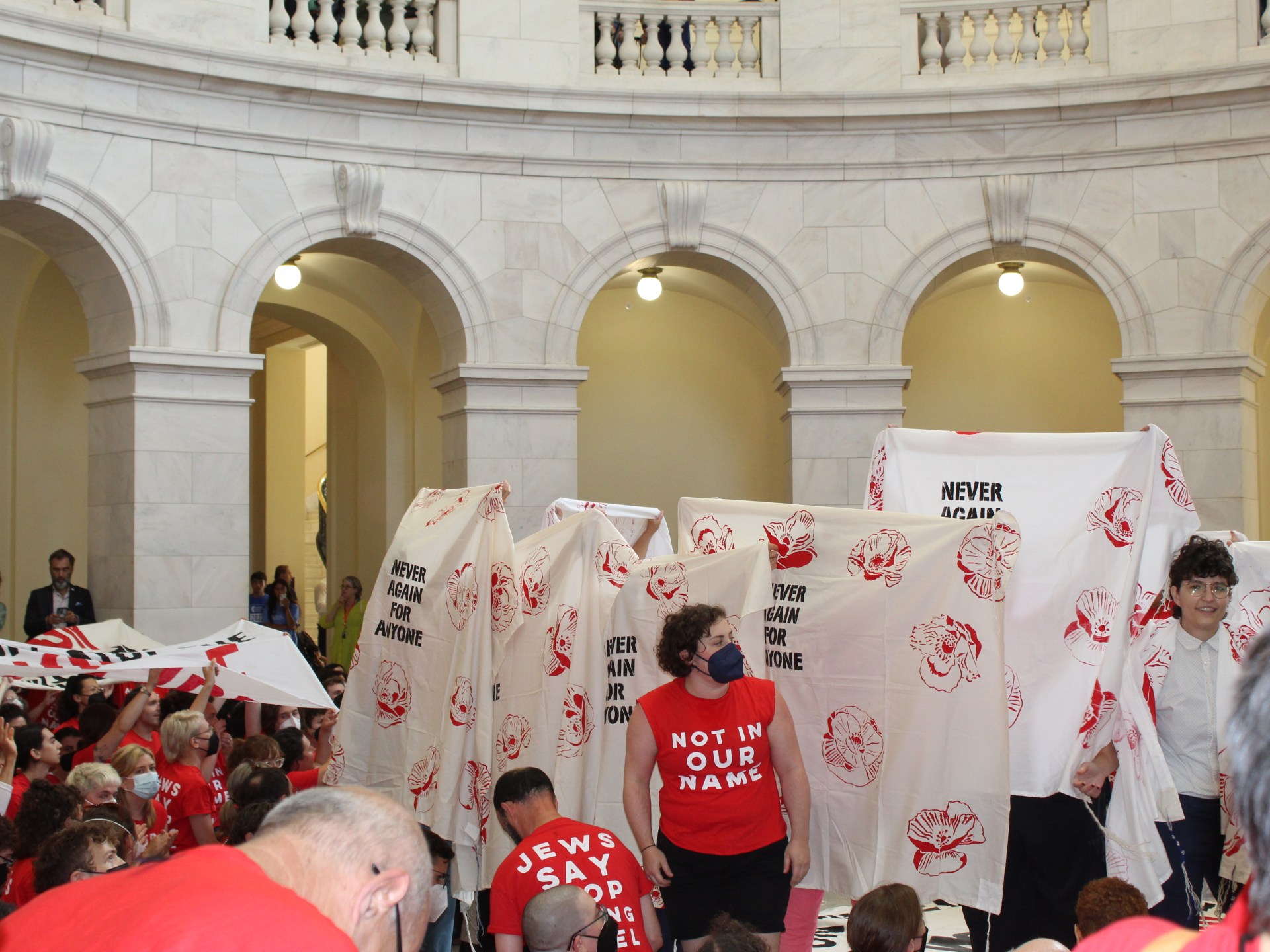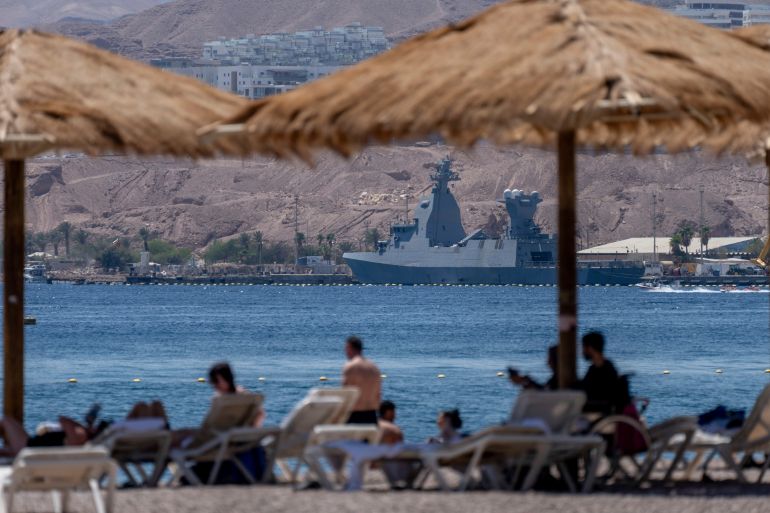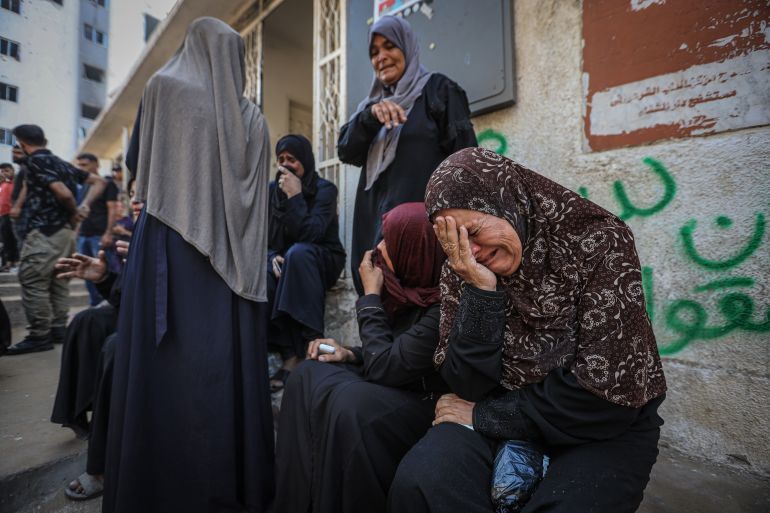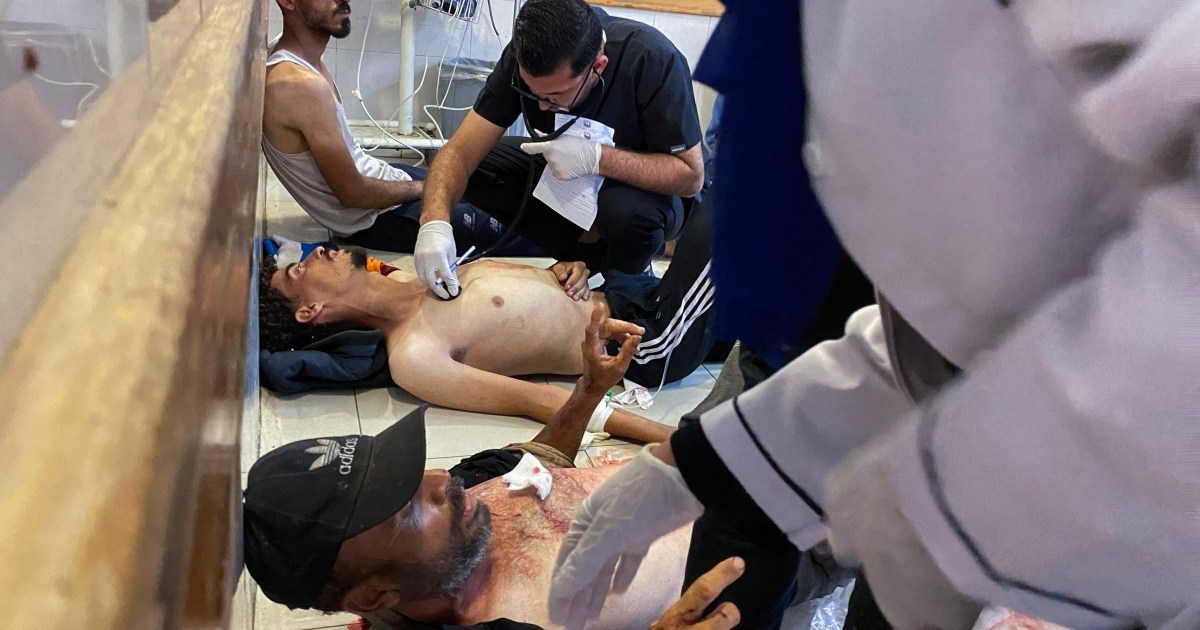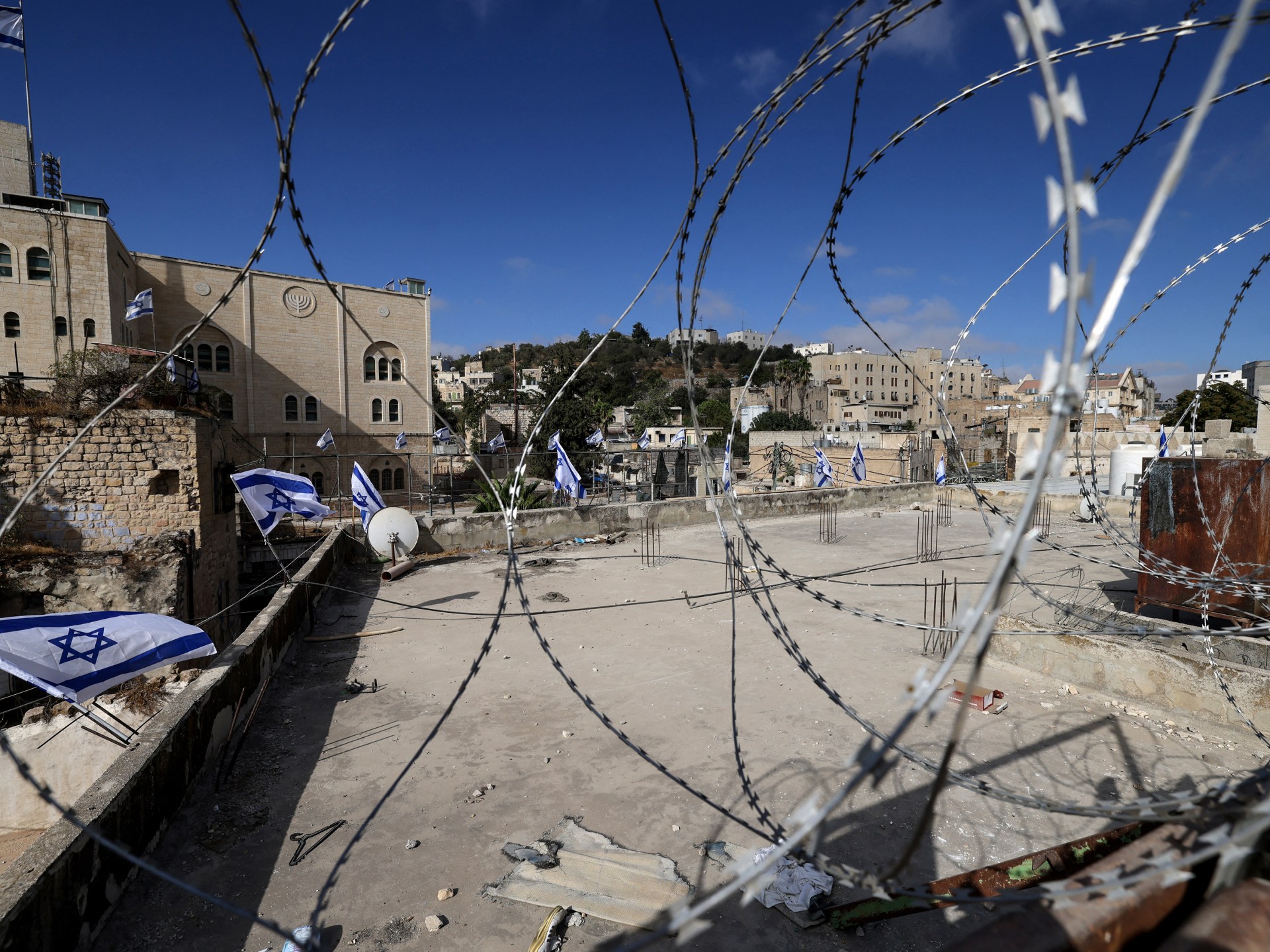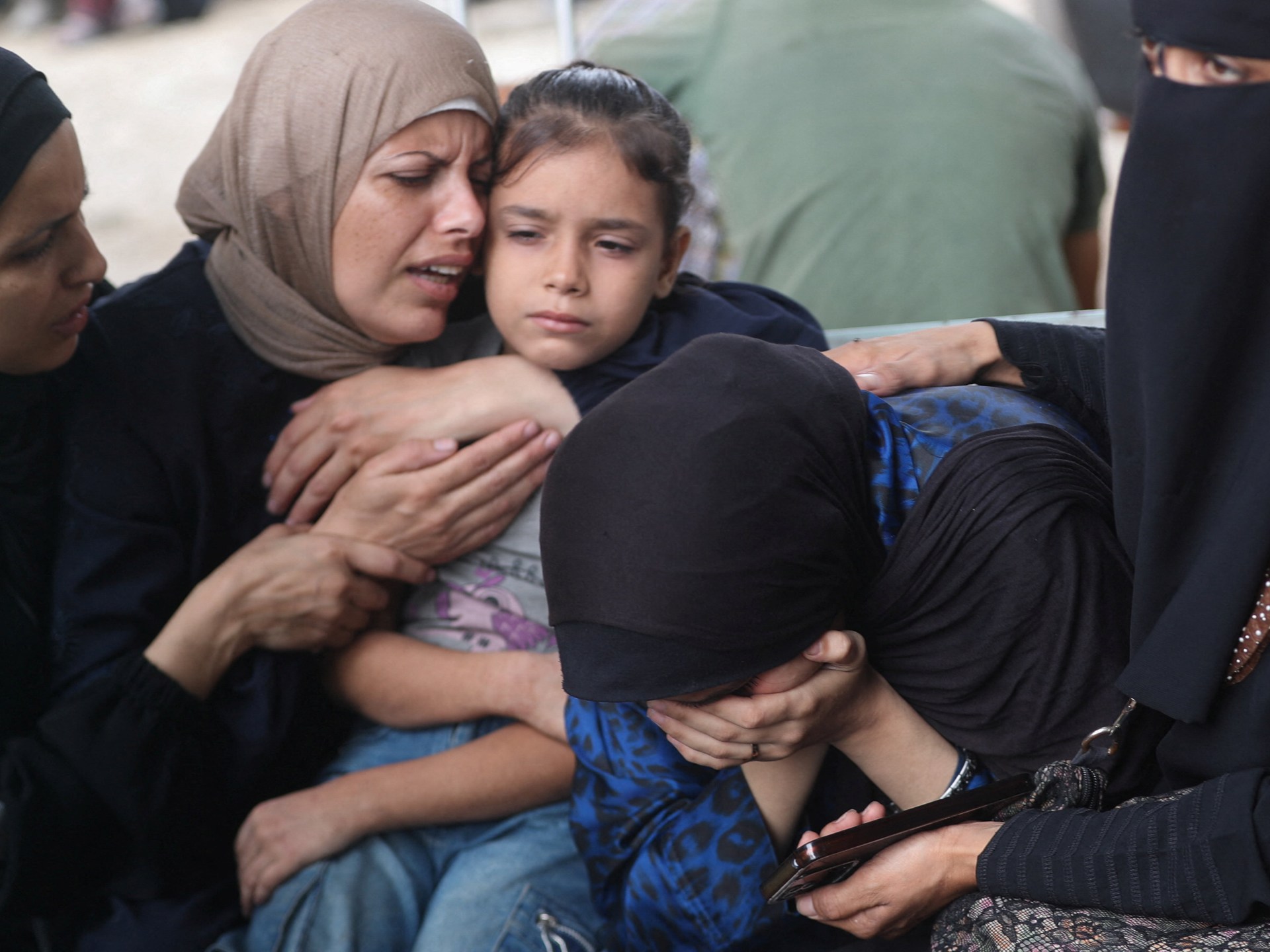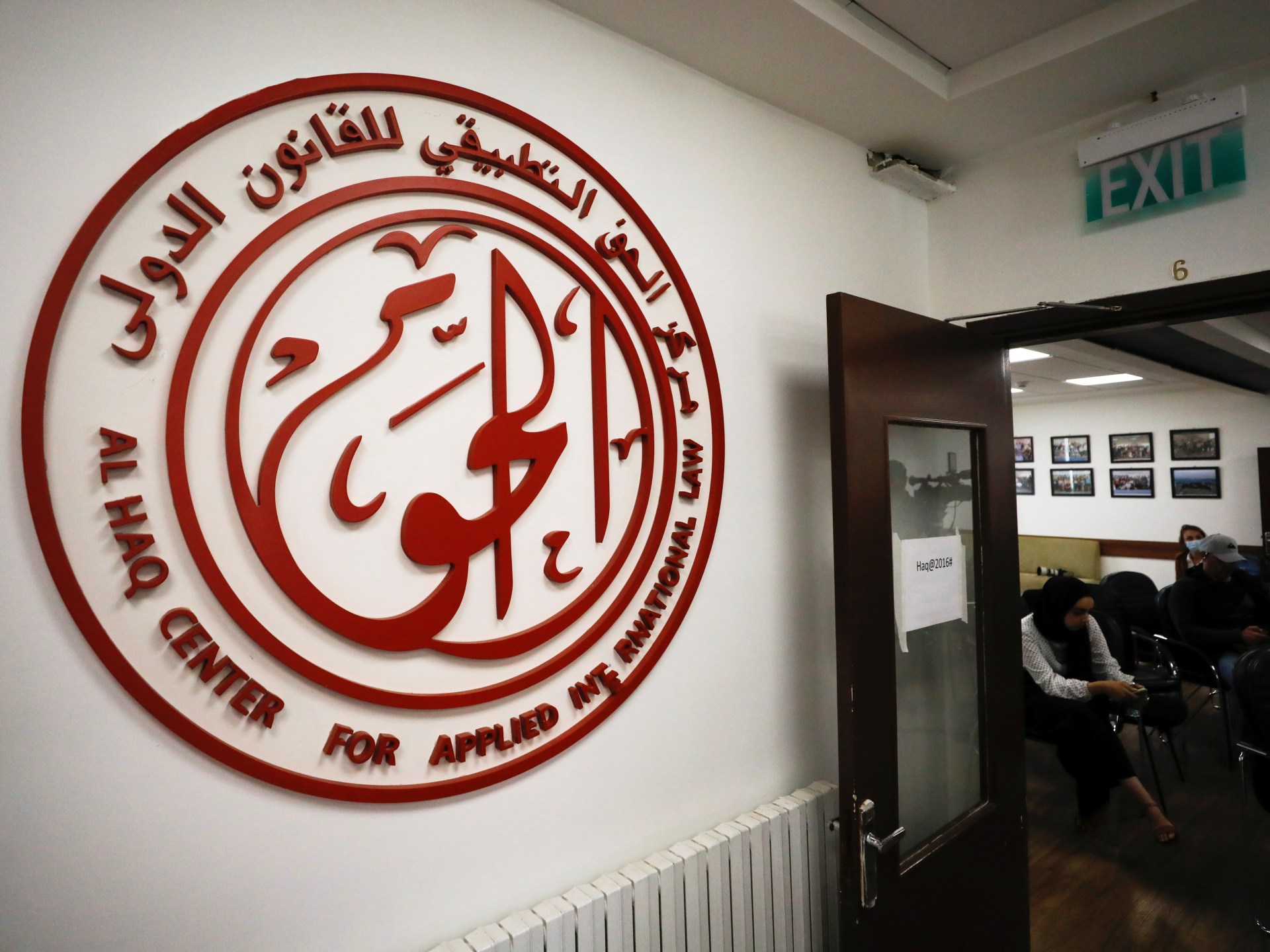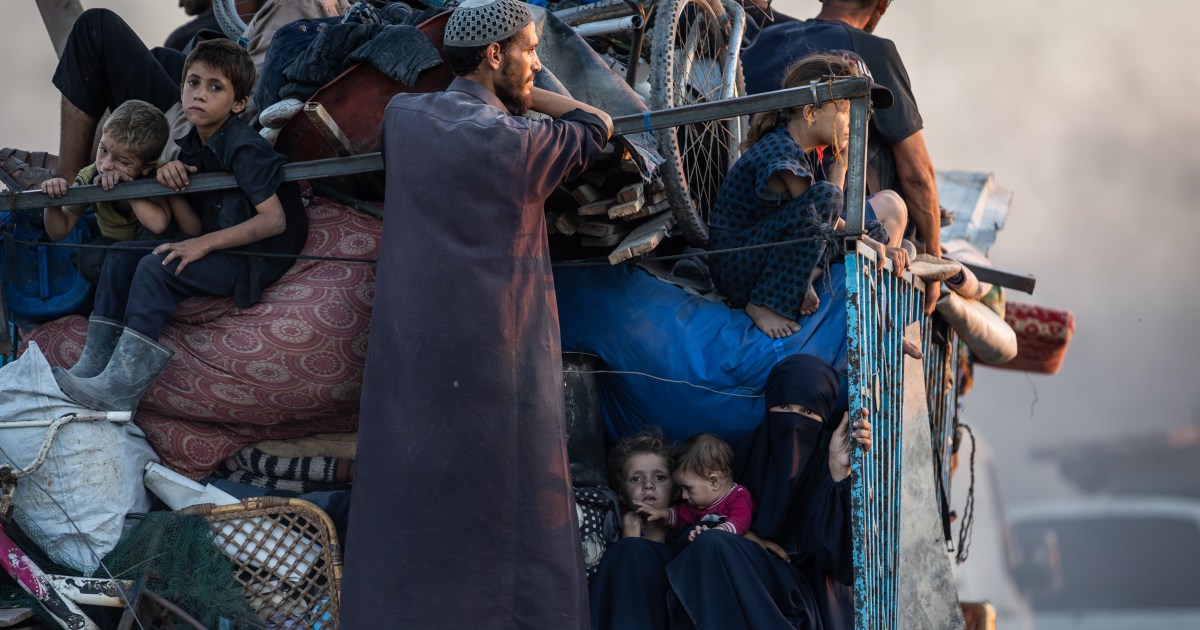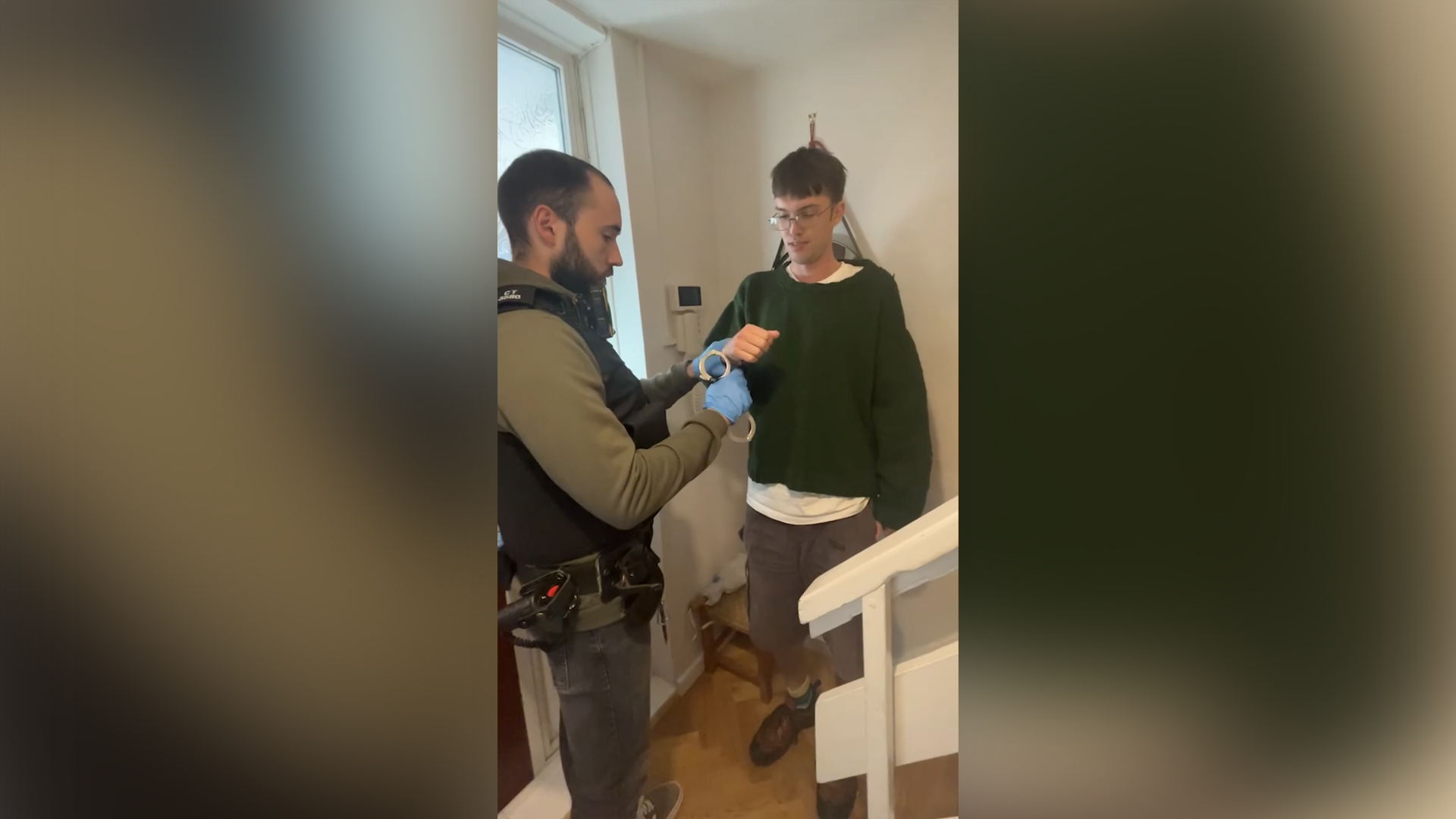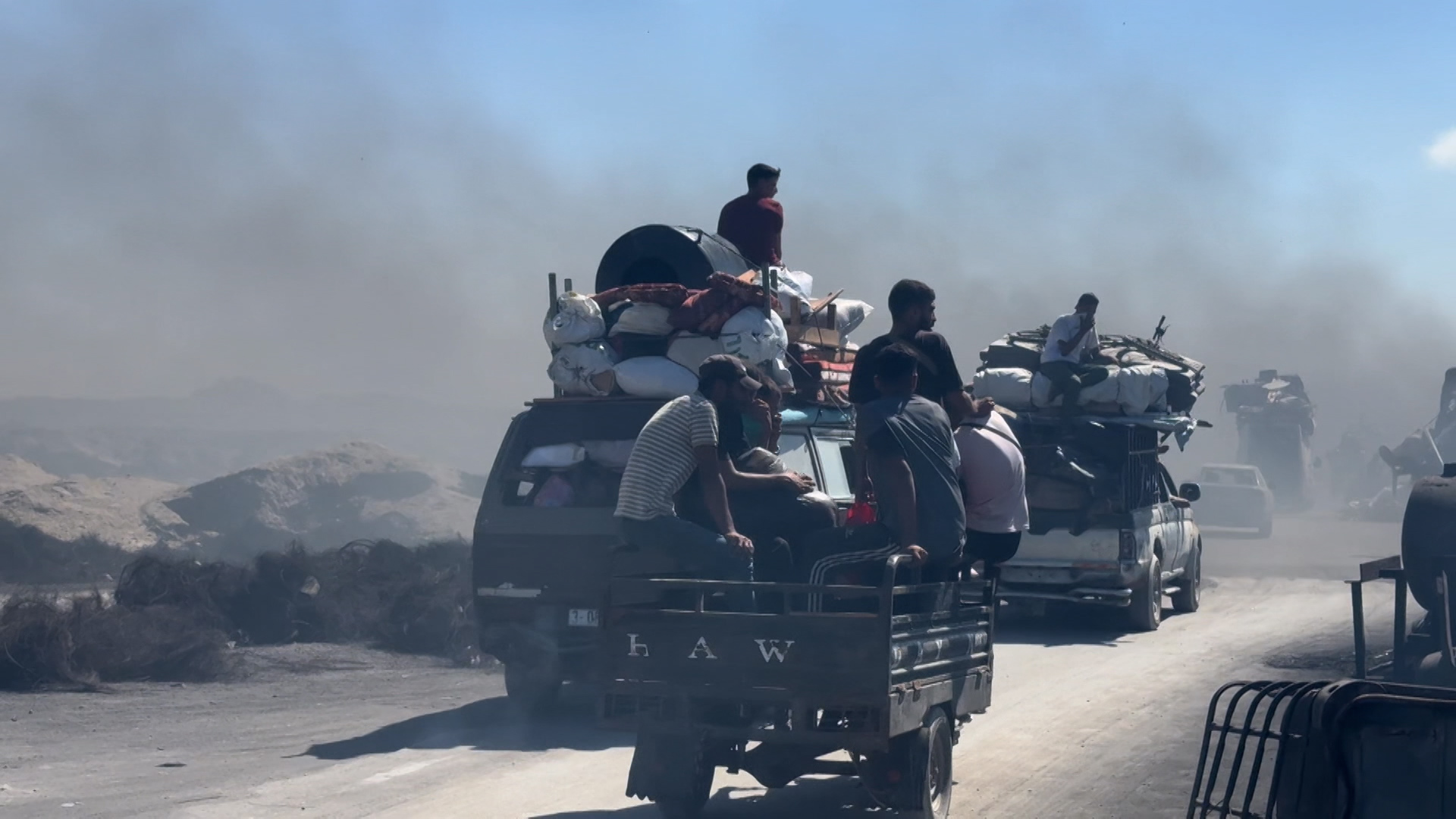‘Gulf region at risk’: Qatar seeks ‘collective response’ to Israeli attack | Israel-Palestine conflict News
Qatar’s Prime Minister Mohammed bin Abdulrahman bin Jassim Al Thani has said that there must be a “collective response” to Israel’s attack on the Qatari capital Doha, as Arab leaders rushed to the tiny Gulf nation to express solidarity.
“There is a response that will happen from the region. This response is currently under consultation and discussion with other partners in the region,” he told US media outlet CNN on Wednesday, adding that “the entire Gulf region is at risk”.
Recommended Stories
list of 3 itemsend of list
“We are hoping for something meaningful that deters Israel from continuing this bullying,” Sheikh Mohammed added, accusing Israeli Prime Minister Benjamin Netanyahu of leading the region into “chaos”.
“We understand some sort of regional meeting will be held here in Qatar. We know that the countries have pulled together their own legal team. They are looking at all legal avenues to have Netanyahu tried for breaking international law,” Al Jazeera’s Charles Stratford said.
“So yeah, the pressure is definitely mounting on Israel, not only from Qatar, but obviously on a regional and a wider international level. And that’s what I think he’s obviously trying to do in giving these very forceful statements to the US network, CNN.”

The Israeli military targeted Hamas leaders in Doha on Tuesday as they were meeting to discuss the latest Gaza ceasefire proposal put forth by US President Donald Trump. At least seven people were killed in the attack, but Hamas said its leadership survived the assassination bid. Qatar says two of its security officers were killed in the attack that has drawn global condemnation.
On Wednesday, French President Emmanuel Macron condemned Israel’s attack in a phone call with Qatar’s Emir Sheikh Tamim bin Hamad Al Thani. “These strikes are unacceptable. I condemn them. I reaffirmed France’s commitment to the sovereignty and security of Qatar,” he posted on X.
The attack was part of a wider wave of Israeli strikes extending beyond its immediate borders, and marked the sixth country attacked in just 72 hours and the seventh since the start of this year. On Wednesday, Israel killed 35 people in an attack on Yemen.
The leader of Lebanon’s Hezbollah group said on Wednesday that Israel’s strike on Qatar is a warning to oil-rich Gulf countries that they would not be spared in the future if armed groups in the region are defeated.
“We are on the side of Qatar that was subjected to an aggression and we also stand with the Palestinian resistance,” Naim Kassem said. He added that the Israeli strike is part of its attempts to create a “Greater Israel” in large parts of the Middle East.
The “Greater Israel” concept supported by ultranationalist Israelis is understood to refer to an expansionist vision that lays claim to the occupied West Bank, Gaza, parts of Lebanon, Syria, Egypt and Jordan.
Israel has been accused of committing genocide in Gaza by numerous rights groups, but that has not stopped it from its brutal campaign of bombardment. On Wednesday, Israeli attacks across Gaza killed at least 72 people, taking the total number of Palestinians killed since October 2023 to more than 64,656. Israel has intensified its assault to capture Gaza City – home to more than one million Palestinians.
Sheikh Mohammed, the Qatari prime minister, also said that the Israeli strike was aimed at undermining “any chance of peace” in Gaza.
“Everything about the meeting is very well known to the Israelis and the Americans. It’s not something that we are hiding,” he said of the presence of Hamas officials in Qatar.
“I think that what [Israeli Prime Minister Benjamin] Netanyahu did yesterday – he just killed any hope for those [Israeli] hostages,” Sheikh Mohammed said about the 20 captives believed to be still alive in Gaza.
Netanyahu appears unfazed
However, Netanyahu appears unfazed by the criticism from global leaders, including the UN secretary-general.
On Wednesday, the Israeli prime minister threatened further attacks on Qatar. “I say to Qatar and all nations who harbour terrorists, you either expel them or you bring them to justice. Because if you don’t, we will,” Netanyahu said.
Qatar has condemned Netanyahu’s “reckless” comments regarding Qatar’s hosting of the Hamas office. “Netanyahu is fully aware that the hosting of the Hamas office took place within the framework of Qatar’s mediation efforts requested by the United States and Israel,” the foreign ministry said in a statement on Wednesday.
It also called out “the shameful attempt therein to justify the cowardly attack that targeted Qatari territory, as well as the explicit threats of future violations of state sovereignty”.
Netanyahu’s threats came despite the US President Donald Trump on Tuesday saying no further attacks would happen on Qatari soil.
The attack on Tuesday was the first such attack by Israel on Qatar, which has been a key mediator in ceasefire talks between Israel and Hamas and hosts the region’s largest United States military base, Al Udeid airbase, which hosts US troops.
The Qatari prime minister, who is also the foreign minister of the Gulf nation, has dubbed Israel’s targeting of Hamas leaders in Doha on Tuesday “state terrorism”.
“I have no words to express how enraged we are from such an action … we are betrayed,” he said in the interview with the cable network.
Netanyahu “needs to be brought to justice. He’s the one who’s wanted at the International Criminal Court. He broke every international law,” Sheikh Mohammed said, referring to the arrest warrant against the Israeli prime minister for war crimes.

Arab states express solidarity with Qatar
Meanwhile, Gulf leaders have visited Doha to rally around Qatar, with UAE President Sheikh Mohamed bin Zayed Al Nahyan calling the Israeli action “criminal” and a threat to regional stability.
In a meeting on Wednesday with Qatar’s Emir Sheikh Tamim bin Hamad Al Thani in Doha, Sheikh Al Nahyan reaffirmed his country’s “resolute solidarity with Qatar and its steadfast support for all measures taken to safeguard its sovereignty, territorial integrity, and the safety of its people”, according to the UAE state media outlet WAM.
“He [Sheikh Al Nahyan] stressed that the criminal attack constituted a violation of Qatar’s sovereignty and of all international laws and norms, warning that such actions threaten the region’s security, stability, and prospects for peace,” WAM added.
The crown princes of Kuwait and Jordan also travelled to Doha on Wednesday.
Saudi Arabia’s de facto ruler, Crown Prince Mohammed bin Salman, also known as MBS, will arrive in Doha on Thursday.

“We will stand with the State of Qatar in all measures it takes, without limits, and we will harness all our capabilities for that,” Prince Mohammed said in an address to the Shura Council on Wednesday.
“We reject and condemn the attacks of the Israeli occupation in the region, the latest of which was the brutal aggression against the State of Qatar,” the crown prince added.
“This requires Arab, Islamic, and international action to confront this aggression and to take international measures to stop the occupation authority and deter it from its criminal practices aimed at destabilising the region’s security and stability.”
In a brief interview with reporters on Tuesday, US President Donald Trump said he was “not thrilled” about Israel’s strike.
“This was a decision made by [Israeli] Prime Minister Netanyahu, it was not a decision made by me,” Trump wrote on his Truth Social platform.
Still, it remains unclear whether the Trump administration had been caught off guard, whether the US had indicated even tacit approval for such a strike, or if the attack could represent a rupture in Washington’s “ironclad” support for Israel.
Independent Middle East Analyst Adam Shapiro said if the US was not made aware of the attack, it was not “something new”.
“I think this is just simply the way Israel continually acts as the tail wagging the US dog, doing what it wishes, when it wishes, and getting what it wants, according to a double standard,” he told Al Jazeera.
